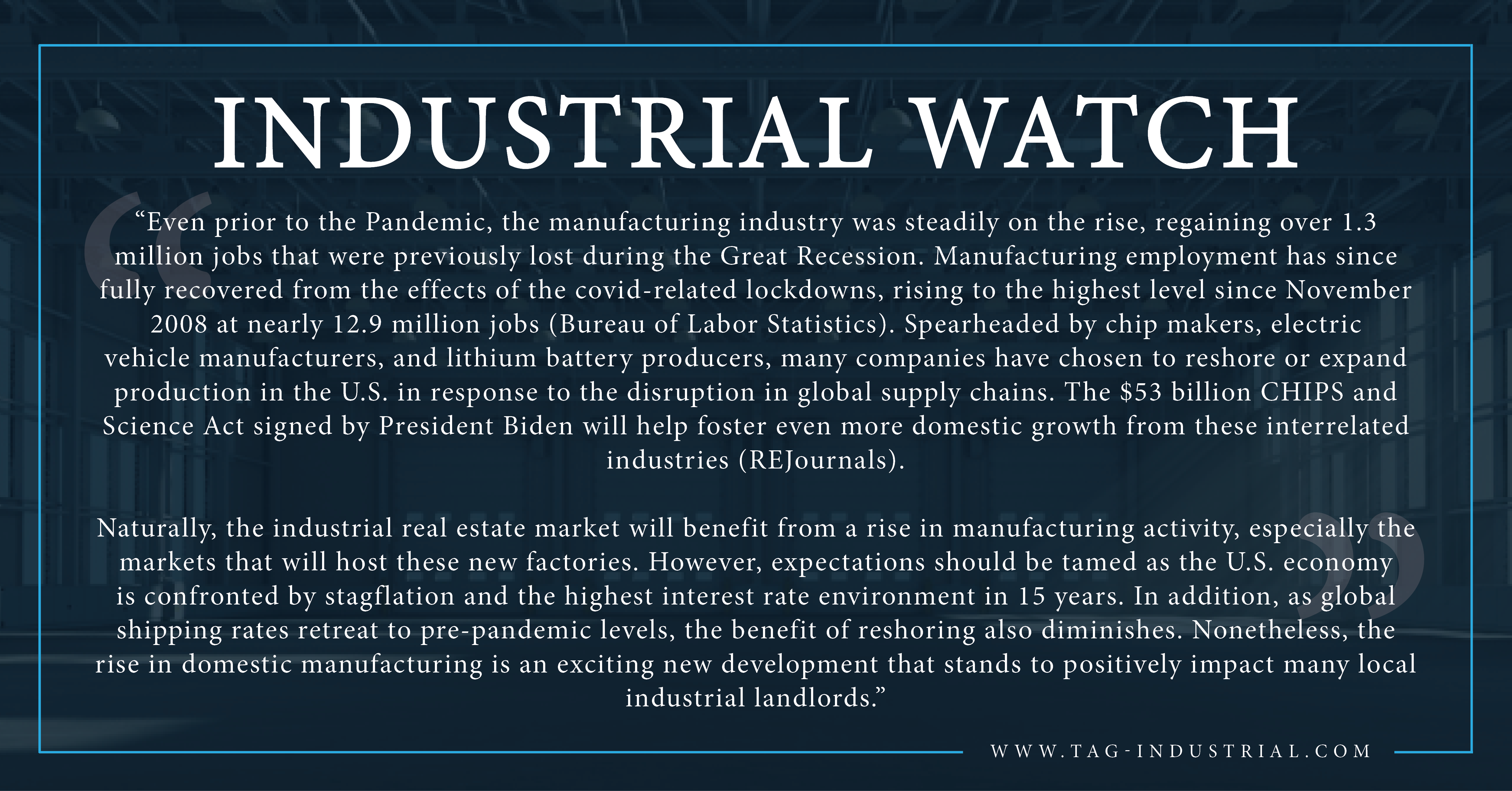TAG Industrial Watch: October 1, 2022
|
Even prior to the Pandemic, the manufacturing industry was steadily on the rise, regaining over 1.3 million jobs that were previously lost during the Great Recession. Manufacturing employment has since fully recovered from the effects of the covid-related lockdowns, rising to the highest level since November 2008 at nearly 12.9 million jobs (Bureau of Labor Statistics). Spearheaded by chip makers, electric vehicle manufacturers, and lithium battery producers, many companies have chosen to reshore or expand production in the U.S. in response to the disruption in global supply chains. The $53 billion CHIPS and Science Act signed by President Biden will help foster even more domestic growth from these interrelated industries (REJournals). Naturally, the industrial real estate market will benefit from a rise in manufacturing activity, especially in the markets that will host these new factories. However, expectations should be tamed as the U.S. economy is confronted by stagflation and the highest interest rate environment in 15 years. In addition, as global shipping rates retreat to pre-pandemic levels, the benefit of reshoring also diminishes. Nonetheless, the rise in domestic manufacturing is an exciting new development that stands to positively impact many local industrial landlords.
Reshoring Providing Yet Another Boost To Industrial Market Industry Embraces Reshoring Initiatives Why Some Industries Are Moving First On Reshoring China Shipping Prices Plummet Due To Worsening Economic Conditions Still No Space, But Is Redevelopment The Solution To
GID Announces Acquisition of 62,000+ SQ FT Industrial Top 5 Markets For Industrial Construction Activity Lovett Industrial, Cresset Partners Break Ground On 1.2 MSF CenterSquare And Boomerang Interests Execute Long-Term Lease Despite Rising Ceiling Heights, Demand Shows There’s |
